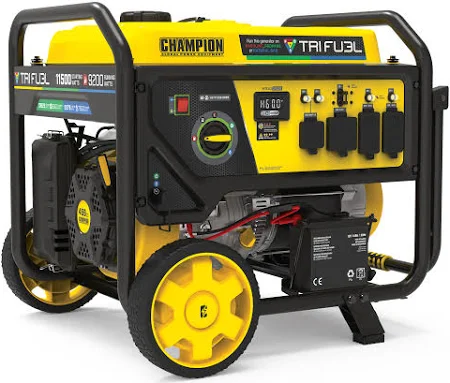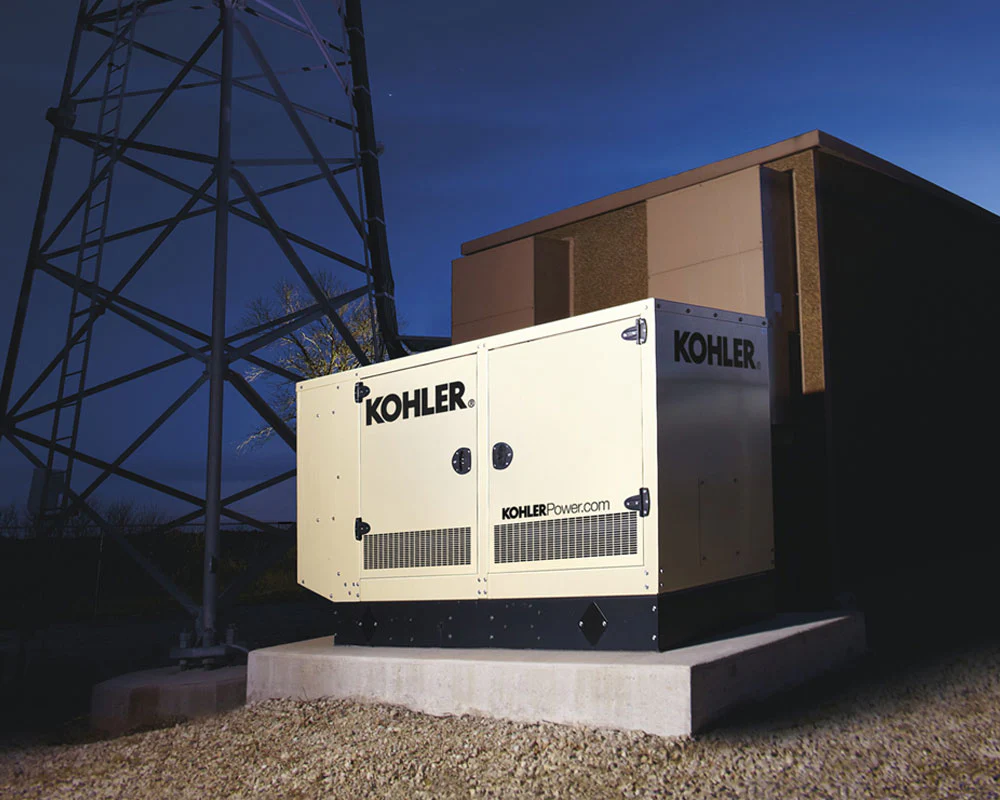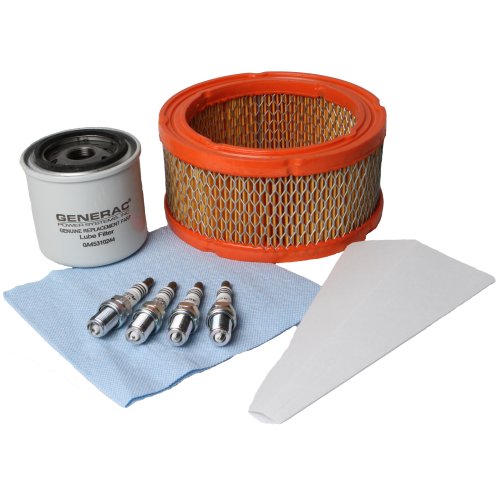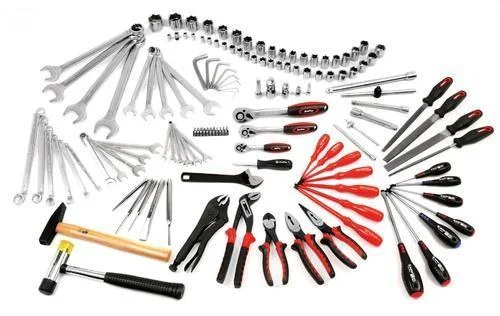Power Generator Care: Servicing Advice for Brands Like Briggs & Stratton, Champion, and More

Generator Care Guide
Ensuring that your power generator is in optimal working condition is crucial for both homeowners and small business owners who depend on these machines for consistent electricity supply. Regular generator maintenance is key to avoiding unexpected breakdowns and ensuring longevity, especially for trusted brands like Briggs & Stratton, Champion, Generac, Cummins, and Kohler. In this guide, we will delve into generator servicing advice, offering expert insights and best practices for generators to help you maintain a reliable power source. By understanding the nuances of generator upkeep and following these generator maintenance tips, you can confidently manage your energy needs and prevent costly disruptions. Whether you’re new to generator care or a seasoned user, this resource aims to empower you with the knowledge needed to effectively maintain your investment.
Importance of Regular Generator Maintenance
Regular generator maintenance is crucial for ensuring reliable performance and longevity of your power equipment. This section will explore best practices, benefits, and common mistakes to avoid in generator upkeep.
Generator Upkeep Best Practices
Maintaining your generator properly is essential for its optimal performance and longevity. Regular upkeep not only ensures reliability but also prevents costly repairs and unexpected breakdowns.
One of the most crucial practices is adhering to a consistent maintenance schedule. This includes regular oil changes, air filter replacements, and spark plug inspections. These routine tasks help keep your generator running smoothly and efficiently.
Additionally, it’s important to run your generator regularly, even when not in use. This practice, known as “exercising” the generator, helps prevent fuel system issues and keeps internal components lubricated.
Lastly, always store your generator in a clean, dry place and protect it from the elements when not in use. This simple step can significantly extend its lifespan and maintain its performance.
Benefits of Routine Servicing
Routine servicing of your generator offers numerous advantages that extend beyond mere functionality. Regular maintenance ensures your generator is always ready to provide power when you need it most, offering peace of mind during unexpected outages.
One primary benefit is increased reliability. A well-maintained generator is less likely to fail during critical moments, ensuring continuous power supply for your home or business. This reliability is particularly crucial for businesses that rely on uninterrupted power for their operations.
Moreover, regular servicing can lead to significant cost savings in the long run. By addressing minor issues before they escalate, you can avoid expensive repairs or premature replacement of your generator. This proactive approach to maintenance can extend the lifespan of your equipment considerably.
Lastly, routine servicing ensures your generator operates at peak efficiency, consuming less fuel and reducing emissions. This not only saves on operational costs but also contributes to a more environmentally friendly power solution.
Avoiding Common Maintenance Mistakes
When it comes to generator maintenance, certain mistakes can lead to reduced performance, increased wear and tear, or even complete failure of the unit. Being aware of these common pitfalls can help you maintain your generator more effectively.
One frequent error is neglecting regular oil changes. Oil is crucial for lubricating the engine’s moving parts, and failing to change it as recommended can lead to engine damage. Always follow the manufacturer’s guidelines for oil change intervals and use the correct type of oil for your specific model.
Another mistake is overlooking the importance of proper storage. Leaving a generator exposed to the elements or storing it with fuel in the tank for extended periods can lead to fuel system issues and corrosion. Always store your generator in a dry, covered area and consider using fuel stabilizers for long-term storage.
Lastly, many users forget to exercise their generators regularly. Running your generator periodically, even when not needed for backup power, helps prevent fuel system problems and keeps internal components lubricated. Aim to run your generator for about 30 minutes every month to ensure it stays in good working condition.
Servicing Different Generator Brands
Different generator brands may have specific maintenance requirements. This section will provide tailored advice for popular brands like Briggs & Stratton, Champion, Generac, Cummins, and Kohler.
Briggs & Stratton Maintenance Tips
Briggs & Stratton generators are known for their reliability and efficiency. To maintain these qualities, following brand-specific maintenance guidelines is crucial. Regular oil changes are paramount for Briggs & Stratton models, typically required after every 50-60 hours of use or annually, whichever comes first.
Air filter maintenance is another critical aspect. For most Briggs & Stratton generators, the air filter should be cleaned or replaced after every 100 hours of operation or annually. This ensures optimal engine performance and fuel efficiency.

Spark plug maintenance is equally important. Inspect and clean the spark plug every 100 hours of use, and replace it if necessary. This helps maintain smooth engine operation and easy starting.
Lastly, don’t forget about the fuel system. If storing the generator for more than 30 days, it’s advisable to add a fuel stabilizer to prevent fuel degradation and carburetor issues.
Champion Generator Servicing Advice
Champion generators have gained popularity for their durability and user-friendly design. To keep your Champion generator in top condition, regular oil changes are essential. Most Champion models require oil changes after the first 5 hours of use, then every 100 hours or annually thereafter.

Air filter maintenance is crucial for Champion generators. Clean the air filter every 50 hours of use or annually, and replace it if damaged. This ensures proper air flow and prevents debris from entering the engine.
Spark plug maintenance is another key aspect. Champion recommends checking and cleaning the spark plug every 100 hours of operation and replacing it if necessary. This helps maintain efficient fuel combustion and easy starting.
Fuel system care is also important for Champion generators. If storing the generator for more than two months, it’s advisable to drain the fuel or add a fuel stabilizer to prevent carburetor issues.
Caring for Generac, Cummins, and Kohler Models
Generac, Cummins, and Kohler are renowned brands in the generator industry, each with their specific maintenance requirements. For Generac models, oil changes are typically required every 100 hours or annually. Regular inspection of the air filter, spark plug, and fuel lines is also crucial.
Cummins generators often require oil changes every 150 hours or annually, whichever comes first. Air filter cleaning or replacement is usually needed every 300 hours. Spark plug inspection and cleaning should be done every 300 hours as well.

Kohler generators typically need oil changes every 100 hours or annually. Air filter maintenance is usually required every 200 hours, while spark plug inspection and cleaning are recommended every 200 hours or annually.

For all these brands, it’s crucial to refer to the specific model’s manual for exact maintenance schedules and procedures. Regular “exercising” of the generator is also important, typically running it for 20-30 minutes every month.
Practical Maintenance Tips for Homeowners and Business Owners
This section provides actionable advice for maintaining generators, ensuring their longevity, and equipping yourself with the right tools for effective maintenance.
How to Maintain a Generator Effectively
Effective generator maintenance is crucial for ensuring reliable performance when you need it most. Start by establishing a regular maintenance schedule based on your generator’s manual and usage patterns. This proactive approach can prevent many common issues.
One of the most important aspects of generator maintenance is regular oil changes. Clean oil is crucial for proper engine lubrication and heat dissipation. Check the oil level before each use and change it according to the manufacturer’s recommendations, typically every 50-100 hours of operation or annually.
Air filter maintenance is equally important. A clean air filter ensures proper air flow to the engine, improving performance and fuel efficiency. Inspect the air filter monthly and clean or replace it as needed, usually every 100 hours of operation or annually.

Don’t forget about the fuel system. Use fresh fuel and add a fuel stabilizer if the generator will be idle for more than 30 days. This prevents fuel degradation and carburetor issues. Also, inspect fuel lines regularly for any signs of wear or damage.
Power Generator Care for Longevity
Ensuring the longevity of your power generator involves more than just routine maintenance. It requires a comprehensive approach to care that addresses all aspects of the generator’s operation and storage.
One crucial aspect is proper storage. When not in use, store your generator in a clean, dry place protected from the elements. This prevents rust, corrosion, and other weather-related damage. If possible, use a generator cover for added protection.
Regular “exercising” of your generator is also vital for longevity. Run your generator for about 30 minutes every month, even if you don’t need backup power. This keeps internal components lubricated and prevents fuel system issues.
Pay attention to your generator’s cooling system. Ensure that air intake vents are always clear of debris and that cooling fins are clean. Overheating can cause significant damage to your generator’s engine.
Lastly, address any issues promptly. If you notice unusual noises, vibrations, or performance issues, investigate and resolve them immediately. Ignoring small problems can lead to more significant, costly repairs down the line.
Essential Tools for Generator Maintenance
Having the right tools on hand can make generator maintenance tasks much easier and more efficient. A well-stocked toolkit ensures you’re prepared for routine maintenance and minor repairs.
Start with basic hand tools: a socket set, screwdrivers, pliers, and wrenches. These are essential for most maintenance tasks, from oil changes to spark plug replacements. An oil filter wrench is also crucial for oil changes on many generator models.

A multimeter is invaluable for electrical troubleshooting. It can help you check battery voltage, test the generator’s output, and diagnose electrical issues. A spark plug gap tool and wire brush are essential for spark plug maintenance.
For air filter maintenance, consider keeping a can of compressed air or a small shop vacuum on hand. These can help remove dust and debris from the air filter and other components.
Lastly, don’t forget about safety equipment. Gloves, safety glasses, and hearing protection are essential when working on your generator. A fire extinguisher should also be kept nearby as a precautionary measure.









